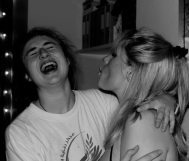British society is at risk of becoming more segregated, as increasing levels of social isolation mean that disabled and elderly people are being "left behind", the Equality and Human Rights Commission (EHRC) has said.
Lord Christopher Holmes, nine-time gold medallist at the Paralympic Games, on Thursday gave a landmark speech in Parliament to mark the UN International Day of Persons with Disabilities.
He urged key leaders including politicians, service providers and industry heads to do more to ensure disabled and elderly people are given equal opportunities in society.
Britain has made progress since the Olympic and Paralympic Games in London in 2012, he said, but "there is increasing evidence that disabled and older people are being locked out or left behind" as society moves forward.
"Far from enjoying increased visibility and being able to participate more fully in every aspect of life, there is a risk that disabled people will become more invisible as both consumers and participants, with organisations losing out on their valuable experiences and custom."
According to the EHRC, disabled people are under-represented in the media, senior business roles and public appointments, as well as across many other areas of public life. Cuts to the number of bus routes across the UK has severely affected disabled people as many rely heavily on public transport. They are also losing out as the internet becomes more vital to every day life.
An estimated 30 per cent of disabled adults in the UK – over one million people – have never used the internet, in comparison to just 7 per cent of non-disabled people. Around a third of disabled people don't even have access to a computer.
Improving opportunities for disadvantaged groups is a "top priority" for the EHRC, which will be expanding its work to tackle social isolation, Holmes said.
"But we can't do this alone. Government, business, service providers and civil society all need to join together and play their part...The government has put fairness and equality of opportunity for everyone at the heart of its programme for the next five years and we must ensure that recognising the needs of disabled people is central to this process.
"We must all step up our collective efforts to tackle the virus of loneliness and social isolation if we are to avoid Britain becoming a more segregated and divided society."
















